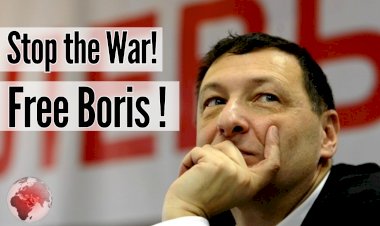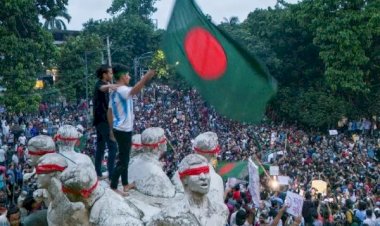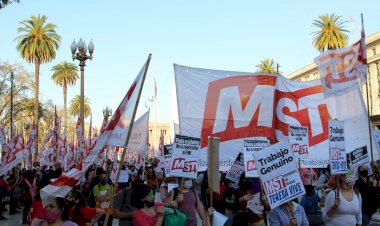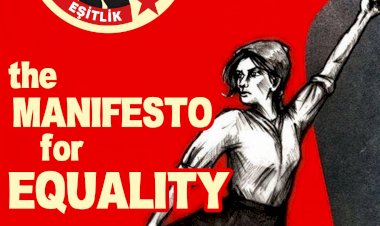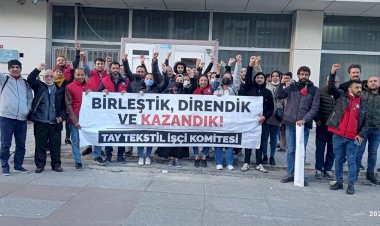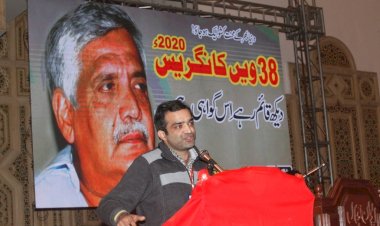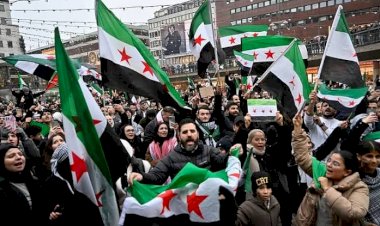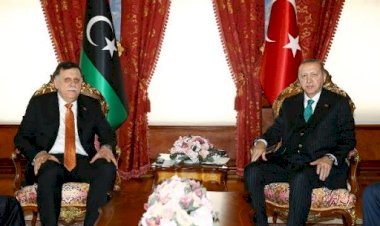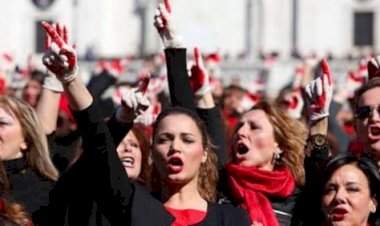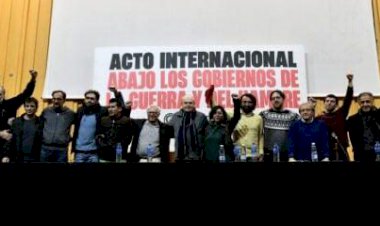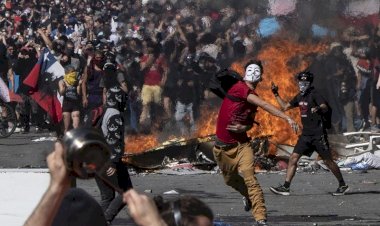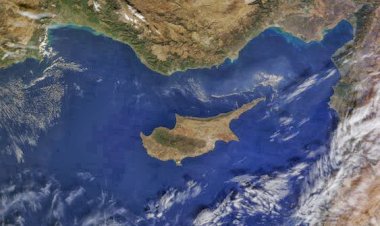The Occupation of Cyprus in its 50th Year
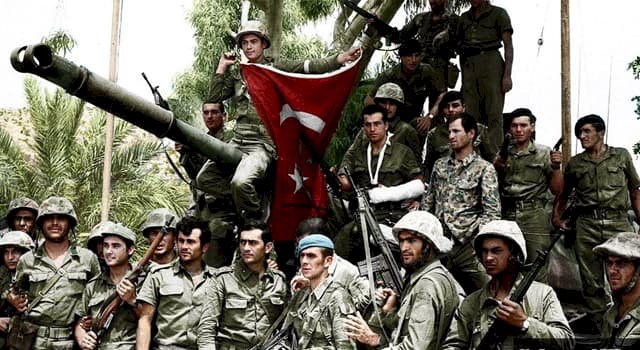
This article was first published in Marxist Bakış on 21 April 2014
The Regime of the Colonels, which seized power in Greece in November 1973, overthrew Makarios by carrying out a parallel coup in Cyprus on July 15, 1974, and formed an extreme right-wing junta under the leadership of Nikos Sampson. The first thing the junta did was to push the button for the annexation of Cyprus to Greece (Enosis) and this gives Turkey the opportunity to intervene in Cyprus. The Cyprus invasion, which was considered in 1964 due to the oppression and massacre of the Turkish minority population by the right-wing EOKA paramilitary groups but could not be realized due to the obstacles of the USA, was now possible after 10 years. On July 20, with the decision of the prime minister of the time, Bülent Ecevit, the Turkish Armed Forces begin occupying Cyprus with tens of thousands of soldiers. The invasion took place in two stages and succeeds. Cyprus got divided in two, while thousands of people lost their lives, the Regime of the Colonels in Greece was overthrown by the Polytechnic uprising in Athens.
An Overview
Cyprus (Greek: Κύπρος, Kipros) is the third largest island in the Mediterranean. To its north is Turkey; to its east is Israel, Lebanon, Syria; to its south is Egypt; and to its northwest is Greece. Considered an "unsinkable aircraft carrier" in the Eastern Mediterranean, Cyprus also has an important position for imperialist powers that want to dominate the region. The total population of the island is 1 million 100 thousand. Approximately 300 thousand of this population lives in the north of the island. Until the 1980s, there were also British, Armenian and Maronite communities on the island with very small populations. With the 1974 operation, especially after the declaration of the TRNC in 1983, the demographic structure of Cyprus was changed by the Republic of Turkey with planned migrations from various regions of Turkey to the island. Although there used to be a certain distance between the local Turkish Cypriots and the immigrant Turkish Cypriots for a long time, this distance has been largely closed with the new generations.
Cyprus was captured by the Ottomans in 1571. In 1878, the Ottomans, who were in a very difficult situation against the Russians in the Russo-Turkish War, rented Cyprus to the United Kingdom for an annual fee of approximately 92,000 gold coins as a return for the "support received against the Russians". The United Kingdom managed the island with high-ranking administrators called "Commissioners." When the Ottomans sided with Germany in World War I, the United Kingdom declared that it had annexed the island in 1914. According to Article 21 of the Treaty of Lausanne signed in 1923, the annexation of the United Kingdom was recognized. In 1925 Cyprus was declared a Crown Colony, and the first Turkish Republic consul was appointed to the island. There had always been a reaction and struggle against these imperialist occupations by the people of Cyprus, but this reaction came to a point of ending when the two brotherly peoples living on the island were pitted against each other.
Cypriots, Turkey, Greece and England
Although the Cypriots struggled against the British occupation, the British administration, in accordance with the divide and rule tactic, sowed the seeds of hostility between the Greek and Turkish Cypriot peoples by appointing the Turks in minority to important positions and giving the impression of favoring them. The demands of the Greeks struggling against the British administration for Enosis were also pushing the Turkish Cypriots into the arms of Britain. The fact that mostly Turks were appointed to positions such as police, prosecutors, guards, etc. under the British rule fueled ethnic hostility.
In January 1950, the Eastern Orthodox Church held a referendum which was boycotted by the Turkish Cypriot community. As a result of the referendum 90% of the people who participated voted in favor of Enosis, the idea of uniting Cyprus with Greece. The far right and anti-communist EOKA organisation, founded in 1955 under the leadership of Georgios Grivas who fought against the communists in the Greek civil war, began armed actions to remove the British forces from the island. Although this armed struggle of the Greek Cypriots was presented as an anti-imperialist uprising, it was an uprising in favor of union with Greece and included nationalist attacks against the Turks on the island. During this time, the Turkish Cypriots also set forth to build their own nationalist organization: the Turkish Resistance Organization (TMT). TMT was far-right and anti-communist just like EOKA. It had a “wolf” emblem and used the term “mujahid” with an Islamic tone for its members. The policy of the Greek nationalists was “Enosis”, while the policy of the Turkish nationalists was “Taksim” (division). Nationalist movements were active in both communities, carrying out mutual fascist attacks and massacring Cypriot leftists and labor leaders who adopted an internationalist stance.
September 6th, a Disgrace
On September 6, 1955, news that the house where M. Kemal was born in Thessaloniki had been bombed was brought to the newspaper headlines by the state. Then the racist September 6-7 bloody events began. Attacks were carried out against all non-Muslims, especially Greeks located in Turkey. 12 non-Muslims were killed, 300 people were injured, hundreds of women were raped, thousands of homes and workplaces and nearly a hundred churches were burned and looted. The attacks proceeded in a highly organized and planned manner. Organizations such as the “Cyprus is Turk” and the “Turkish National Student Union” led the attacks. And the government, once again applying its usual policy of slander, claimed that all this was done by the communists and targeted both the Greeks and the communists, thus eliminating both of them. Years later, General Sabri Yirmibeşoğlu admitted the truth with his own words, saying, “The September 6-7 incidents were the work of the Special Warfare Department, and it was a magnificent organization. It fulfilled its mission.” In other words, the Turkish rulers who supposedly tried to protect the oppressed Turks in Cyprus carried out a disgusting massacre against the Greek and Armenian population, which were already reduced to a handful by being massacred in Istanbul. One aspect of the Turkish Republic’s Cyprus policy is to force the last remaining Greeks to migrate and bring them to zero. Indeed, they achieved this goal.
Repression in Cyprus
In the second half of the 1950s, all left-wing organizations in Cyprus were closed and publications were banned. Approximately 140 people were arrested and sent to camps. Repression continued until December 1959. During this period, many left-wing cadres were massacred under the direction of Grivas, one of the EOKA fascist leaders. Despite this, the left-wing cadres continued their struggle illegally. On the other hand, the Stalinist communist party AKEL in Cyprus, holding a critical place in the class struggle, had its fair share of nationalism and could not create a real revolutionary alternative.
In the first months of 1956, England, which started "autonomy" talks with Makarios had him arrested and exiled upon him insisting on "the right of nations to self-determination.”
In July 1956, a development that was contrary to England’s interests took place. The nationalist Nasser administration in Egypt announced that he was nationalizing the Suez Canal, and the British military bases established in Egypt because of the canal were closed. In the meantime, the struggle of the Greeks in Cyprus was also heightening. Having lost its bases in Egypt, England was forced to recognize “the right of nations to self-determination” in order not to lose Cyprus completely, whose regional importance had increased. However, stipulating that its military bases on the island remain.
In early 1957, EOKA declared a ceasefire; temporarily laying down arms after Makarios’ release. In 1960, it gained independence under the name Republic of Cyprus.
TMT and the Attacks on Internationalist Labor Movement in the Island
On July 20, 1974, when the Cyprus Operation began, there were 17,151 fascist of TMT. One of the main targets of TMT were Turkish laborers who defended peace and independence on the island. Following a rally organized jointly by Greek Cypriots and Turks, TMT began to massacre unionized Turkish workers with fascist attacks. Similarly, leftist Greek workers were massacred by fascist Greeks (by EOKA). The working class, which was fighting together against imperialism, had to be massacred. Because should they not end the class movement that had the potential to grow stronger as soon as possible, all their efforts would be in vain. Paramilitary nationalist organizations from both sides took on the role of enforcer in this work.
Division of Cyprus
Following the Greek coup in 1974, the Turkish Armed Forces carried out an operation and occupation; resulting in the formation of a unilateral Cyprus Turkish Federated State established in the north of the island, which later became the Turkish Republic of Northern Cyprus. On the other hand, this mini state would not be recognized by the world. (According to other countries, the entire island is still accepted as the Republic of Cyprus. The north of Cyprus is seen as a region occupied by the Turkish Republic of Northern Cyprus, and an official state called the TRNC is not recognized.) However, with the occupation of Cyprus in 1974, the Turkish Armed Forces would begin to carry out Turkey's ambitions to establish dominance on the island. Although Northern Cyprus and Southern Cyprus appear to be two separate independent countries on the island, the Cypriots have not gained real independence. Neither has Northern Cyprus been able to escape being Turkey's 'child homeland,' nor has Southern Cyprus being considered Greece's backyard. And in addition to all this, there are NATO bases on the island.
According to the referendum of April 24, 2004, the majority of the people living in the north of the island were in favor of unification with the South within the framework of the Annan Plan, but the majority of the people in the South were against the Annan Plan.
On May 1, 2004, the southern part of the island, governed by the Greeks, joined the European Union under the name of the "Republic of Cyprus", representing the entire island. But this did not mean anything in the sense of a solution. While the division continued, the EU entered an economic crisis, and Southern Cyprus experienced economic bankruptcy following Greece. The deprivation in the north continues as well. In short, the solution is not in the EU, but in the United Socialist Cyprus and its international struggle.
Protest of the 6th Fleet, Occupation of Cyprus and Failed Tests
One of the most important issues of the 1960’s left which gave born to the 1968 movement, which has a very important place in the history of the revolutionary left in Turkey, was Cyprus. In 1964, the arrival of the American 6th Fleet in Turkey unleashed serious anti-imperialist anger, and the street movement led by the youth demonstrated serious radicalism. However, the fact that the US sent the 6th Fleet to prevent Turkey's intervention in Cyprus was addressed from a nationalist perspective within the left. In the 1970s, with the re-emergence of the Cyprus problem, the Stalinist left continued this attitude and, at its strongest, fell into a position supporting the occupation of the island by the Turkish state. This nationalist perspective, which sees anti-imperialism as anti-USA, took an extremely bad political position in the Cyprus problem in 1974, when the Turkish ruling class invaded the island.
The main reason for the 6th Fleet to come to the Mediterranean was İsmet İnönü's decision to launch an operation in the island after the Enosists and Turkish fascists started a massacre on the island on June 2, 1964. This war that was going to be launched against Greece, a subcontractor of England, was quite disturbing for the USA. In a letter sent to İnönü on June 5, US President Johnson openly stated that they would prevent this operation. The letter explained that Turkey’s unilateral intervention in the island meant two NATO countries fighting and that this was unacceptable within the Cold War equations, while it was a harsh reminder to Turkey that it could only be a subcontractor in the region. During this process, the first anti-US youth actions were organized on August 27, 1964. After the letter, Turkey gave up on its decision to intervene, but after the Colonels’ Regime took power in Greece in 1967, the aggressive policy and the massacre of Greeks by Turkish fascists paved the way for a process in which the people of the island were pushed into an irreversible break.
The youth, propagandizing “Our compatriots are being massacred” often remembered M. Kemal and the Greek soldiers being pushed back towards the sea and drew inspiration from this when throwing the US soldiers into the sea. However, at that time, a great communist hunt had begun in Cyprus. AKEL had increased its social support. The unions where Greek and Turkish workers were organized together and the laborers who were its members were under heavy attack by Greek and Turkish fascists. The problem was the lack of a n internationalist perspective.
During the Justice Party’s rule, soldiers from the 6th Fleet were invited to Istanbul for a “break” in order to reduce tensions with the US. The left, including the TİP (Workers Party of Turkey), were in favor of the occupation. This war was to be fought in Cyprus against the US and NATO, with the Turkish Army, which is a member of NATO. After all, the target was not socialism, but the National Democratic Revolution. The leaders of the movement had neither the time nor the means to question a patriotic-nationalist heritage that was so deeply connected to Kemalism.
They were very angry with imperialism, but the youth, who were not given any alternative other than different versions of Stalinism, did not have a program saying that anti-imperialism was anti-capitalism, and that this was the internationalist class struggle itself. This problem caused the left to support the invasion of Cyprus in 1974. In short, Stalinist nationalism had captured not only the left in Greece and Cyprus but also the left in Turkey.
Real Solution for Cyprus
The natural gas fields found to be dense in Cyprus must have whetted the appetite of the imperialists, judging by their projects having gained momentum. Although there are no problems between the peoples, imperialism is insolvable. The issue is related to the imperialist capitalist system, and except for the small nationalist elements, there is no hostility between the peoples.
The risk of Cyprus becoming a base for possible attacks on Syria indicates the danger of the Cypriot people being caught in the middle of these dirty blood policies. Unless the people of Cyprus establish a “United Socialist Cyprus” and carry their revolutionary struggle to the world on an internationalist line, they will hope in vain for a solution from the EU and other capitalist projects.
Cyprus’ history is full of painful examples of how the imperialist capitalist system and its chauvinist representatives pit people against each other. On the other hand, despite the passing of decades, the deadlock of the imperialist system in Cyprus continues.
Northern Cyprus has not seen the light of day since it was invaded. The ruling classes in Turkey have turned the north of Cyprus into a colony, using the ethnic conflict they themselves instigated and the great suffering experienced, as a cudgel, constantly provoking hostility towards the Greeks. The nationalist-chauvinist attitudes of the rulers on Greece and the Greek side have also strengthened the status quo positions of Rauf Denktaş and the Turkish state for many years.
Since the beginning of the occupation, the Turkish ruling class and army have resorted to money laundering and getting rich on the island. Cypriots, on the other hand, have been treated as “feeders”; as the child homeland, they have always been expected to express their gratitude to the “motherland”. From Rauf Denktaş to İrsen Küçük, the governments that are at the disposal of the Turkish ruling classes have seen fit to inflict all kinds of offences on the people of Cyprus. The Cyprus version of all kinds of cadre formations, oppressions and privatization policies implemented on Turkey’s borders especially during the AKP rule, have been implemented by the UBP. Only in 2011, when the Cypriot people took to the streets to say “Ankara, hands off Cyprus”, social anger against the AKP reached en masse. For this reason, AKP hastened to pursue oppressive policies in the island parallel to Turkey.
Currently, the coalition government in the North is CTP-BG and the Democrat Party. CTP’s claim that it is on a socialist line changes nothing, exploitation continues and the undertaking of collaboration with Ankara is an open insult to socialism. This situation of CTP is nothing more than its adaptation to Stalinist revisionism. Unless United Socialist Cyprus is established and turns into an international socialist struggle, the islanders will be subjected to occupation, exploitation, labor theft and becoming a haven for gangs.
Cyprus, which has a very important geopolitical position for the Turkish government and other imperialist states, has recently increased its importance even more. Against the dirty and bloody war policies of being used as a base for imperialist intervention in Syria, the joint struggle of the northern and southern Cyprus’ people is of great importance.
While the workers of Cyprus fight against the rulers of Turkey, they must also strive for the regional unity of the working class and aim to destroy the capitalist system of exploitation. The regional unity of the working class means first the unity of Turkish and Greek Cypriot workers and then the unity of the Turkish and Greek workers.
It should not be forgotten that not only the workers of the Middle East but also the workers of Europe, with Greece being in the forefront, are standing up against neoliberal attacks. World capitalism is in crisis, the workers of the world are shaking the world with their rebellions. Our laboring Cypriot friends should also know, in the 50th year of Cyprus’ occupation, that there is no local liberation and in this context; while waging struggle for a united socialist Cyprus, they should not forget that this can only come to completion with a socialist world revolution and ultimately free them from imperialist offences forever.
Withdraw All Occupation Forces from the Island!
Cyprus is of Cypriots!




